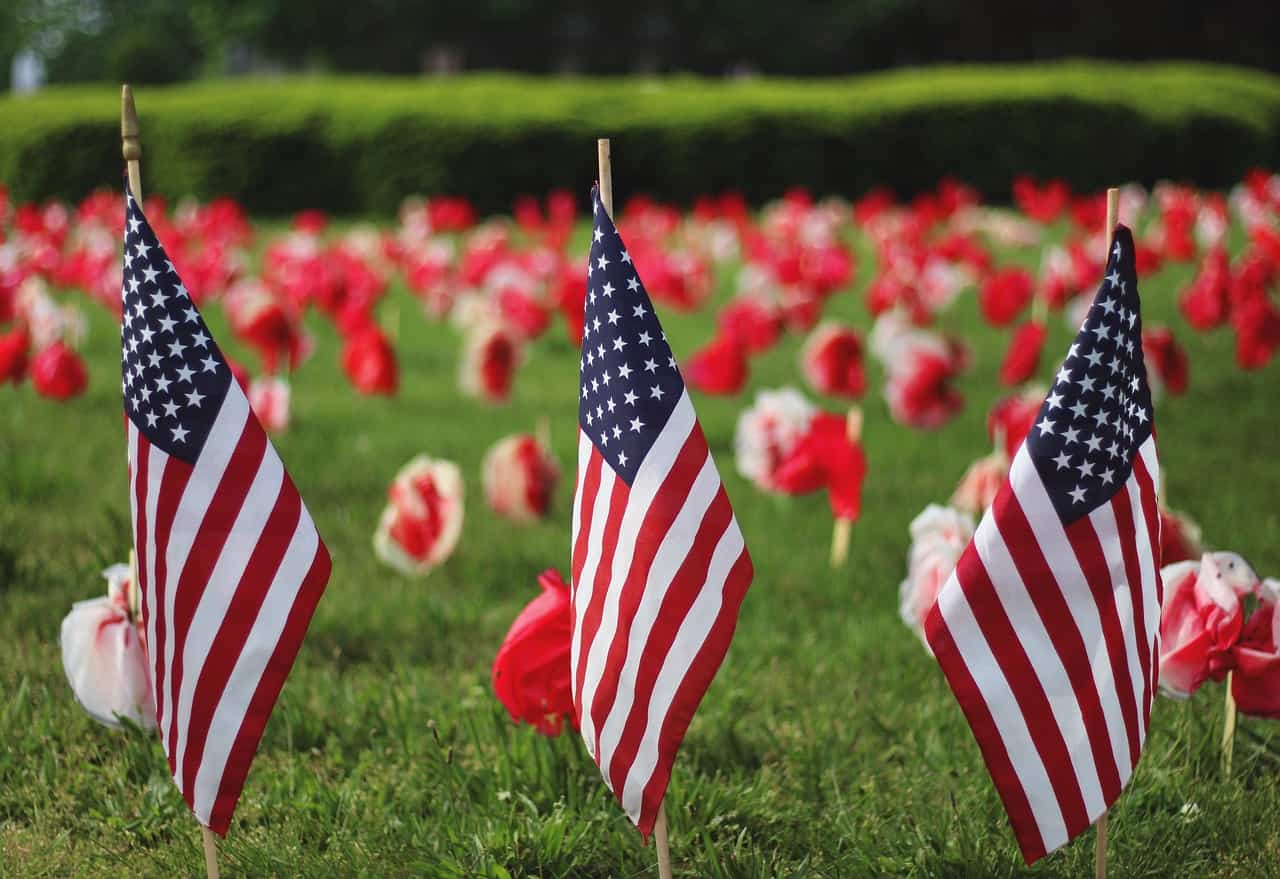
Grief Can Be a Common Issue on Memorial Day
This year, Memorial Day falls on Monday, May 29. It’s typically a day reserved for cookouts, days off school, and gatherings with friends and family. But let’s not forget the real reason for the holiday — to remember the brave soldiers (men and women) who perished while serving in the United States military. Here at Pathways, we take care of several veterans in our hospice programs, comprised of both patients and family members. This can be a very sensitive time, so please feel free to take advantage of our bereavement services in San Mateo and elsewhere.
On Memorial Day, we remember those who gave the ultimate sacrifice, while honoring our still-living veterans every day through thoughtful and compassionate caregiving. Memorial Day was first known as Decoration Day, established to honor the nation’s war dead in the 1860s, just around the time of the Civil War.
This holiday has morphed in many ways over the decades to become an unofficial introduction to the summer season resulting in a long weekend off school and work. However, for several families, this is a time for commemoration and somber reflection.
Memorial Day and How It Affects Grievers
Our loved ones who have died live on in our memories, and those memories are how we hold onto reminders of them. Those reminders can be objects, people, places, or experiences. With enough time, memories that once brought on sadness and grief can transform into a sense of love, peace, acceptance, and remembrance, says family grief counselor Jill Cohen. When trying to cope with grief, using remembrance as a way to heal can act as an established principle that allows us to go on living our lives meaningfully.
Memorials are a vital part of all cultures and have been in place for thousands of years. From the Vietnam Veterans’ Memorial to the Lincoln Memorial, sites like these were created to remember unforgotten heroes and exceptional leaders. Any memorial that has been made in honor of someone will serve as a forever tribute to their life so all can remember. In the case of Memorial Day itself, this was created so people can become united by their collective grief. In remembrance of the service men and women who died, many of us feel a combination of grief and gratitude: grief for the continued pain of loss, and gratitude for what they sacrificed.
Memorial Day should be seen as a day or weekend to support grieving loved ones and fellow veterans who are still mourning the loss of a friend, parent, sibling, etc.
Remembrance and Respect
While it’s OK to celebrate with barbecues and beach visits, the heart of a Memorial Day celebration should focus on the true origin of this day: respect and remembrance. Be mindful of the void that remains after someone you know has lost a loved one. It doesn’t matter how long ago the loss happened — it can be yesterday, last year, 20 years ago, or 40. There is a deep pain that comes with the loss of a child, sibling, spouse, or parent, and if you haven’t experienced this specific pain of loss, it can be hard to relate.
That means you may be uncertain as to what to say to those who are suffering. You may wonder if you should invite them to your cookout, or acknowledge their loss in some way. You may feel guilty celebrating on a day that’s reserved for the remembrance of loss. But you should definitely include them in your celebrations, and you should definitely say something to acknowledge their loss. It doesn’t have to be a grand gesture. Just say you’re sorry and that you’re there for them. For example, perhaps you can contribute a memory of your friend’s dad about how kind he always was when inviting you to their home. Or, to a mother, maybe you can say something like “Your son was brave and was always a great friend to me.”
The key is to support them and make it known that you appreciate the sacrifices their family member made in honor of a nation that is eternally grateful, says AARP. What you shouldn’t do is compare their loss to yours or add religious undertones to what you’re saying. Simple condolences are best, perhaps offset by personal stories and anecdotes when you feel it’s appropriate. One thing’s for sure: those who have lost someone in battle want to preserve their memory and don’t want them to be forgotten. That’s why they always appreciate memories and stories that can be shared to bring them to life.
Appreciating Our Veterans
We are sensitive to the needs of our veterans here at Pathways and know the many ways in which they can suffer. Exposure to chemical agents in wartime…post-traumatic stress disorder (PTSD)…from physical to emotional, veterans suffer from issues that stem from their time in the service, and we never forget that. Our medical social workers set veterans up with community resources for them and their families, partnering with local VA facilities to meet the needs of our older hospice population.
Contact Pathways Home Health and Hospice
Find out how Pathways loves and cares for our veterans or ask us about our Pathways We Honor Veterans team. Just contact us at 888-978-1306.

